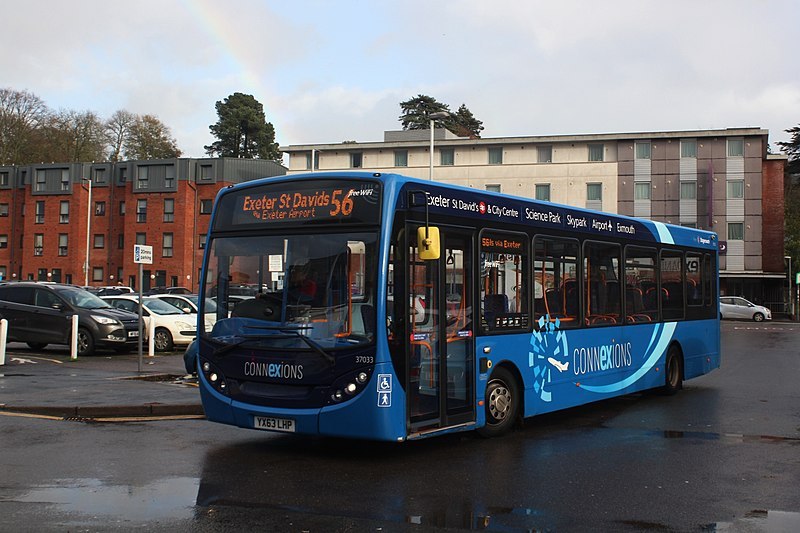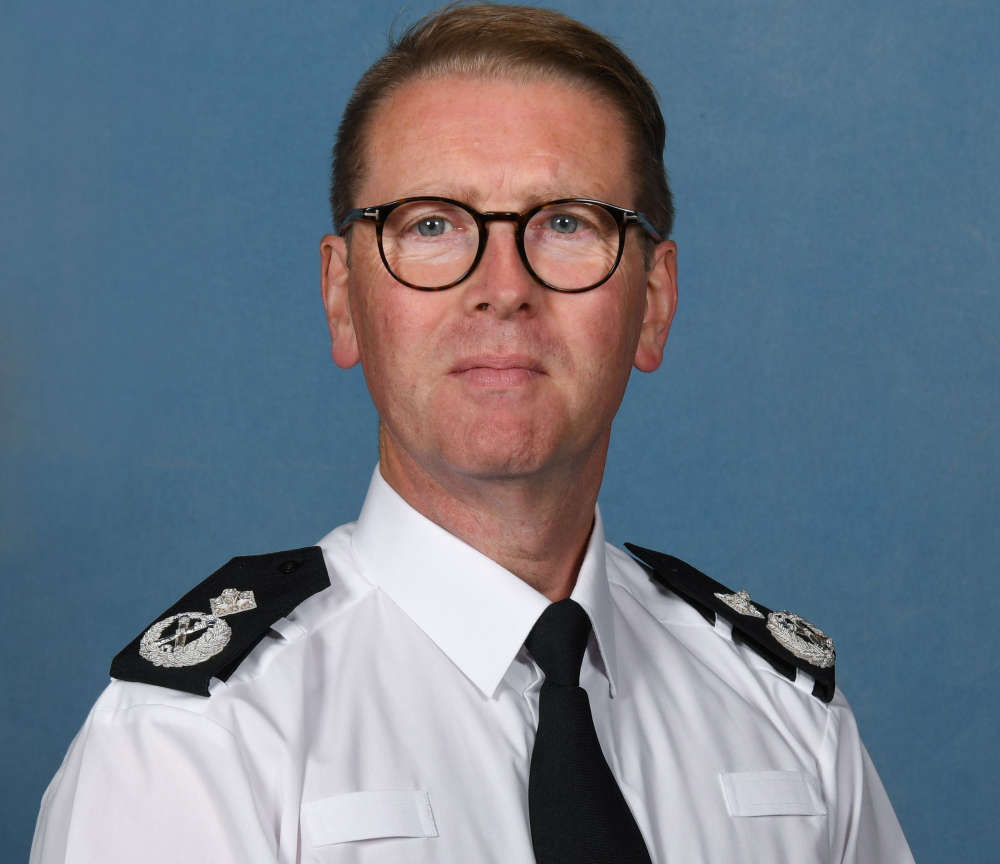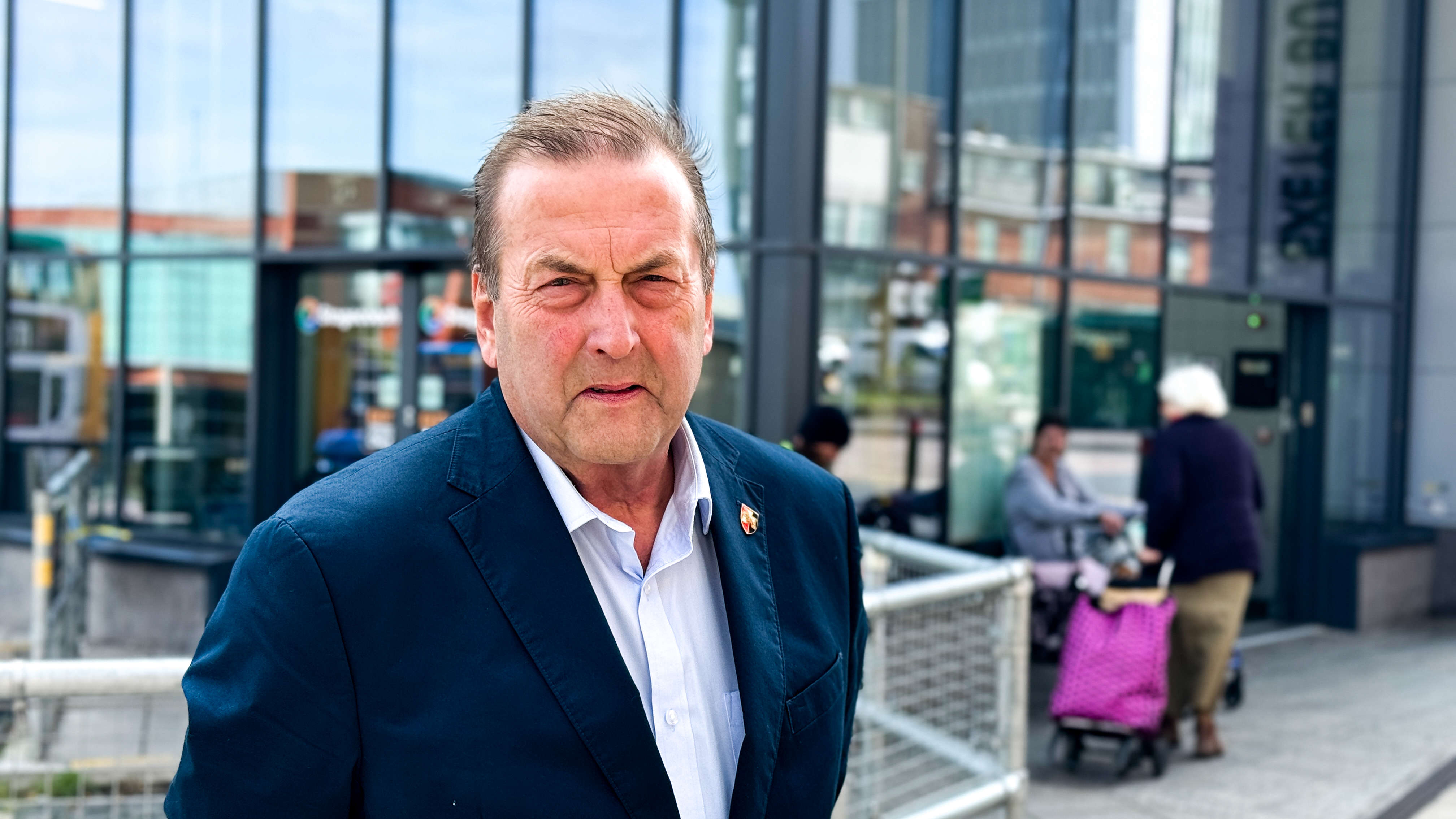
'Lost mileage' is just three per cent
Stagecoach’s bus service reliability in Exeter has “improved” according to the under-fire company’s boss.
Mike Watson, managing director of Stagecoach South West, appeared before Exeter’s highways and traffic orders committee (HATOC), as the operator continues to face criticism for delayed and cancelled buses.
Earlier this year the committee called the city’s bus service ‘not fit for purpose,’ while Stagecoach has been summoned to a public inquiry later in the month which will decide whether action should be taken against the company following a number of complaints from users.
Stagecoach has blamed staff shortages, including a struggle to fill vacancies, and a drop in passenger numbers compared to before the pandemic, leading to swathes of timetable alterations.
But Mr Watson claims that the amount of ‘lost mileage’ on the Exeter bus network has now fallen to three per cent, after previously being nine per cent a year ago – “a much-improved situation,” according to the MD.
He told the meeting: “I think it’s improved, but because obviously everyone wants the reliability to go back to where it was pre-pandemic, there’s a lot of people that are tired with it.”
Mr Watson added that further service changes coming into force from Sunday 30 October will mean “we eliminate our lost mileage.”
But the changes have been criticised by many, with some routes and services being cut entirely, although the frequency of selected routes will go up. Stagecoach has said the changes are necessary to focus resources on the highest demand.
“At that point, whilst we won’t be fully staffed, we will be in a position where we will be covering all of our work,” Mr Watson added. “So, the first time for 18 months, we will actually be covering all of our mileage.”
An ‘enhanced partnership’ is being set up in the coming weeks so that Devon County Council and local bus operators can improve services, and the Stagecoach chief says he will be focussing on “growth and how we get people back on the bus network.”
But Councillor Tracey Adams (Labour, Pinhoe & Mincinglake) questioned this, asking: “How are you going to grow? I appreciate these are really challenging times but I would like you to challenge the forces above you to be more ambitious.
“I’ve lived in a time in the past where bus services in other countries … they are poorer countries than we are and they are much more efficient. They have smaller buses, more people go on, more frequency and cheaper.
“Obviously if the prices go up [and] there’s less frequency, less people are going to use it.”
In response, Mr Watson said more buses with cheaper prices was “really, really difficult to do when patronage is at 70 per cent of pre-pandemic [levels].
“There is no magic money coming along to cover that 30 per cent loss of patronage,” adding it has to be dealt with by Stagecoach and the local council.
He also said that the promotion of active travel (walking and cycling) within the city, while being a “fantastic thing,” will likely impact the number of bus users.
Stagecoach will grow by getting its “product right,” Mr Watson said. This will involve increasing the frequency of services when staffing levels allow, with it described as the company’s “biggest constraint to growing.”
After a suggestion that the “improved reliability” of the service in Exeter was in fact down to Stagecoach simply running far fewer services than it did before, the CEO rejected it had “taken the opportunity to cynically slash the network.”
He explained: “Our mileage compared with pre-pandemic is probably in Exeter down by maybe 15 per cent, but patronage is down by 20 to 25 per cent.”
Later in the meeting, Councillor Su Aves (Labour, St Sidwells & St James) demanded improvements from the operator: “If you’re saying services are improving you’ve got to get your communications right. A lot of people that use buses are elderly.
“They don’t have the app. They don’t look at those things. They’re standing at the bus stop, the bus gets cancelled [and] it doesn’t turn up.”
She added: “It isn’t just an inconvenience; people are missing hospital appointments.”
Mr Watson responded: “Things have massively improved as we sit here now, but I wouldn’t put that out because I believe we still haven’t got to where we want to go yet. I believe we’ll be at that point by November.”
The bus company’s app was also criticised by a number of councillors. They were told it had “suffered in the same way the reliability of the services had,” with Mr Watson suggesting that people use the interactive map for more accurate information.
Details of all the bus timetable changes from Sunday 30 October can be found on the Travel Devon website.
Mr Watson said it was likely to be his final grilling by councillors, having announced his resignation in the summer.
Asked what he would be doing next, he said: “I’m going to have a break first and then I don’t know.”
 Honiton man jailed for terrorism-related crimes
Honiton man jailed for terrorism-related crimes
 Lib Dems "have mountain to climb" in Devon, says its leader
Lib Dems "have mountain to climb" in Devon, says its leader
 Chief constable won't be prosecuted
Chief constable won't be prosecuted
 Exeter to lobby Post Office over city centre branch future
Exeter to lobby Post Office over city centre branch future
 Pop-up market proposal for Exeter city centre
Pop-up market proposal for Exeter city centre
 'Bad deal' blast over Churston solar farm
'Bad deal' blast over Churston solar farm
